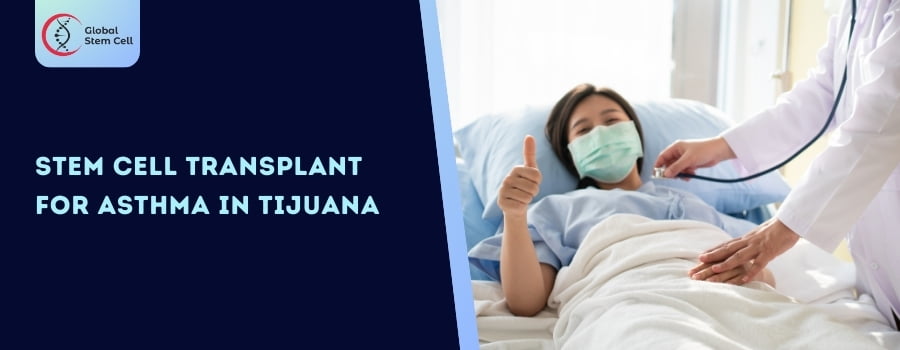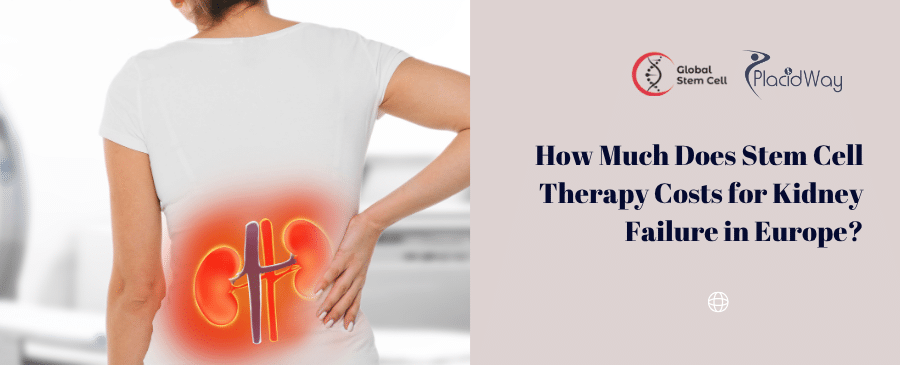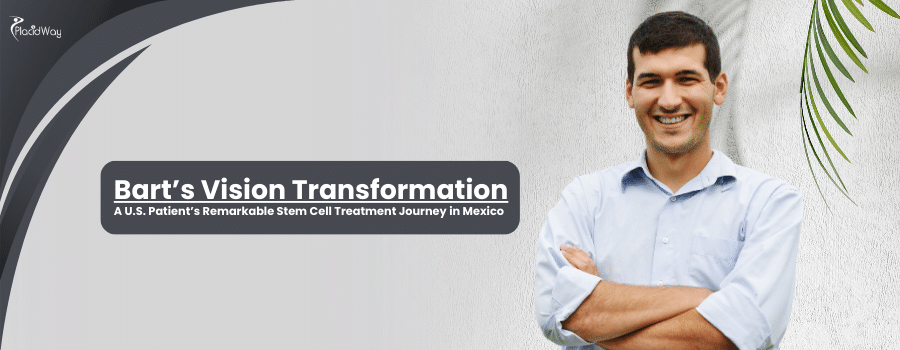
Asthma is a chronic respiratory condition that affects millions of people worldwide. Characterized by inflammation and narrowing of the airways, asthma can lead to symptoms such as wheezing, shortness of breath, chest tightness, and coughing. While traditional treatments focus on managing symptoms, terapia cu celule stem offers a promising new approach to potentially address the root causes of asthma.
Tabel de conținut
Tijuana, Mexico, has emerged as a leading destination for advanced medical treatments, including stem cell therapy. This blog post explores the benefits, process, and key considerations for seeking stem cell transplant for asthma in Tijuana.
Understanding Asthma and Stem Cell Therapy
Asthma is a chronic respiratory condition that affects millions of people worldwide. It is characterized by inflammation and narrowing of the airways, leading to symptoms such as wheezing, shortness of breath, chest tightness, and coughing.
Traditional treatments for asthma focus on managing symptoms and preventing flare-ups, but they do not offer a cure. Stem cell therapy has emerged as a promising new approach to potentially address the root causes of asthma. Here’s an in-depth look at asthma and how stem cell therapy can be a game-changer in its treatment.
What is Asthma?
Asthma is a complex condition influenced by both genetic and environmental factors. It involves:
- Airway Inflammation: The airways become inflamed, swollen, and sensitive to various triggers, leading to narrowed airways and difficulty breathing.
- Airway Hyperresponsiveness: The airways overreact to certain stimuli such as allergens, pollutants, cold air, exercise, and respiratory infections.
- Mucus Production: Excess mucus is produced in the airways, further blocking airflow and exacerbating symptoms.
Common Triggers of Asthma
- Allergens: Pollen, dust mites, pet dander, mold.
- Irritants: Smoke, pollution, strong odors, chemical fumes.
- Respiratory Infections: Cold, flu, bronchitis.
- Physical Activity: Exercise-induced asthma.
- Weather: Cold air, sudden temperature changes.
- Stress: Emotional stress can trigger or worsen asthma symptoms.
Traditional Treatments for Asthma
Avoiding triggers, maintaining a healthy weight, and practicing good respiratory hygiene.
- Inhaled Corticosteroids: Reduce inflammation in the airways, helping to control chronic symptoms.
- Bronchodilators: Relax the muscles around the airways, making it easier to breathe during an asthma attack.
- Leukotriene Modifiers: Help prevent asthma symptoms by blocking the action of certain chemicals in the immune system.
- Immunotherapy: Allergy shots or sublingual tablets to reduce sensitivity to allergens.
How Does Stem Cell Therapy Work for Asthma?
The primary mechanisms by which stem cell therapy may benefit individuals with asthma include:
- Reducing Inflammation: Stem cells have potent anti-inflammatory properties that can help reduce chronic inflammation in the airways, a key factor in asthma.
- Repairing Airway Damage: Stem cells can promote the repair and regeneration of damaged airway tissues, improving lung function and reducing symptoms.
- Modulating the Immune System: Stem cells can help regulate the immune system, reducing the hyperresponsiveness of the airways to triggers.
- Enhancing Lung Function: Improved airway repair and reduced inflammation can lead to better lung function and overall respiratory health.
De ce să alegeți Tijuana pentru terapia cu celule stem?
Tijuana has become a popular destination for medical tourism due to several advantages:
- Proximity to the United States: Tijuana’s close proximity to the U.S. border makes it easily accessible for American patients. Many clinics cater to international patients, providing a convenient and cost-effective option for treatment.
- High-Quality Medical Facilities: Tijuana is home to state-of-the-art medical facilities that adhere to international standards. Many clinics are equipped with the latest technology and staffed by experienced medical professionals.
- Expert Medical Professionals: The medical professionals in Tijuana are highly trained and experienced in stem cell therapy and regenerative medicine. Many have received education and training in the United States and other advanced medical education systems.
- Cost-Effective Treatment: Stem cell therapy in Tijuana is often more affordable than in the United States and other countries. This cost-effectiveness does not compromise the quality of care, making it an attractive option for many patients.
- Tratamente inovatoare: Clinics in Tijuana are at the forefront of medical research and innovation, particularly in regenerative medicine. They offer the latest treatments and protocols, providing patients with cutting-edge care.
Best Stem Cell Clinic in Tijuana Meixco
Tijuana has become a renowned destination for advanced medical treatments, including stem cell therapy. With its proximity to the United States, high-quality medical facilities, and cost-effective treatment options, Tijuana is an attractive choice for patients seeking innovative therapies. Here are some of the top stem cell clinics in Tijuana, known for their expertise, quality of care, and successful treatment outcomes.
ProgenCell
ProgenCell is a leading clinic in Tijuana specializing in regenerative medicine and stem cell therapies. With a focus on treating various conditions, including asthma, arthritis, and neurological disorders, ProgenCell is known for its comprehensive and personalized treatment plans.
Key Features:
- Echipă medicală experimentată: The clinic boasts a team of highly qualified doctors and medical professionals with extensive experience in stem cell therapy.
- State-of-the-Art Facilities: ProgenCell is equipped with modern medical technology and adheres to international standards.
- Planuri de tratament personalizate: Each patient receives a customized treatment plan tailored to their specific needs and medical condition.
- Îngrijire cuprinzătoare: From initial consultation to post-treatment follow-up, ProgenCell provides thorough and continuous care.
Procesul de tratament
- Consultare și evaluare inițială: Patients undergo a comprehensive medical evaluation to determine their suitability for stem cell therapy. This includes reviewing medical history, current symptoms, and previous treatments. Pulmonary function tests (PFTs) and imaging studies may be conducted to assess lung function and airway inflammation.
- Plan de tratament personalizat: Based on the assessment, a customized treatment plan is developed. This plan outlines the type of stem cells to be used, the number of treatment sessions required, and any additional supportive therapies.
- Recoltarea celulelor stem: If autologous stem cells (from the patient’s own body) are used, they are harvested from bone marrow or adipose tissue. Allogeneic stem cells (from a donor) are prepared from sources such as umbilical cord tissue or embryonic stem cells.
- Administrarea celulelor stem: The administration of stem cells can be done through various methods, including:
- Intravenous Infusion: Stem cells are infused directly into the bloodstream, allowing them to travel to the lungs and other affected areas.
- Inhalation Therapy: Stem cells are delivered directly to the lungs via a nebulizer or inhaler, targeting the airways more precisely.
- Îngrijire posttratament: After the administration of stem cells, patients are monitored for any immediate reactions. Follow-up appointments are scheduled to track progress and make any necessary adjustments to the treatment plan. Additional supportive treatments such as respiratory therapy and nutritional support may be recommended.
Potential Benefits of Stem Cell Therapy for Asthma
- Reduction in Inflammation: Stem cells have anti-inflammatory properties that can help reduce airway inflammation, a key factor in asthma.
- Repair of Airway Damage: Stem cells can promote the repair and regeneration of damaged airway tissues, improving overall lung function.
- Improvement in Lung Function: Many patients report improvements in lung function, leading to better control of asthma symptoms and a reduction in the frequency and severity of asthma attacks.
- Enhanced Quality of Life: By improving lung function and reducing symptoms, stem cell therapy can enhance the overall quality of life for patients with asthma, allowing them to engage in daily activities more easily.
Întrebări frecvente
Who is eligible for stem cell therapy for asthma?
Eligibility for stem cell therapy may depend on various factors, including the severity of asthma, overall health status, and previous treatments. A thorough medical evaluation is necessary to determine if a patient is a suitable candidate.
How does stem cell therapy differ from conventional asthma treatments?
Conventional asthma treatments typically involve inhalers, medications, and lifestyle changes to manage symptoms and prevent flare-ups. Stem cell therapy, on the other hand, focuses on regenerative medicine, aiming to repair and regenerate damaged lung tissues, potentially offering a more long-term solution.
Can stem cell therapy reduce the need for asthma medications?
While some patients may experience reduced reliance on medications after stem cell therapy, it is not guaranteed. The therapy may complement existing treatments rather than replace them. Patients should continue using their prescribed medications and consult with their healthcare provider before making any changes.
What is the cost of stem cell therapy for asthma?
The cost of stem cell therapy can vary widely depending on the clinic, the type of stem cells used, and the specific treatment protocol. It can range from a few thousand to tens of thousands of dollars. Patients should inquire about costs upfront and consider potential additional expenses, such as travel and accommodation.
Can children with asthma undergo stem cell therapy?
Stem cell therapy for children with asthma is still an area of research. The safety and efficacy of such treatments in pediatric patients are not yet well-established. Parents should consult with pediatric specialists and consider all available options before pursuing this treatment.
How many treatment sessions are needed?
The number of treatment sessions required can vary depending on the individual’s condition and response to therapy. Some patients may benefit from a single session, while others may require multiple treatments over time. The medical team will develop a personalized treatment plan based on the patient’s specific needs.
If you are considering stem cell therapy for asthma, consult with reputable clinics in Tijuana and explore the potential benefits and risks to make an informed decision. The journey towards better respiratory health and enhanced quality of life is within reach, driven by advancements in regenerative medicine.





